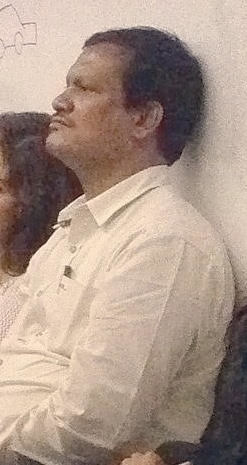Pad Man

Credit: Afnaan Ali Khan
Licence: Creative Commons Attribution-Share Alike 4.0 International, via Wikimedia Commons
7 June 2016
| Giver: | Individual |
|---|---|
| Receiver: | Individual or unstructured/informal group |
| Gift: | Items |
| Approach: | Philanthropy |
| Issues: | 5. Gender Equality |
| Included in: | Social Entrepeneurship |
Pad Man is the nickname of Arunachalam Muruganantham, an Indian social entrepreneur who rose to global fame by inventing a low-cost, easy-to-use machine that can make menstrual sanitary pads quickly, cheaply and locally. Installed across 27 states in India and in 17 other global majority countries, these machines are transforming menstrual health for rural women who cannot afford to buy traditional commercial pads. Muruganantham took considerable personal and financial risk to pursue his invention, while confronting the deep social stigma that surrounds menstruation in Indian culture. His ongoing work is fueled not by a desire for profit, but rather by his determination to improve the lives of women in India and around the world.
Muruganantham is recognized today as an early pioneer in a growing global movement to address period poverty defined as a lack of access to menstrual hygiene products and bathroom facilities to manage menstruation safely and discreetly a problem that negatively impacts women’s health, education and gender equality. According to the World Bank, period poverty affects more than 500 million girls and women around the world.
In 1998 — long before the term period poverty was coined — Muruganantham was newly married and working as a welder when he discovered that his wife used old rags to manage her period. As he learned that this was common practice in their rural community, where nearly all of the women couldn’t afford to spend precious household funds on store-bought menstrual pads, he resolved to develop a cheaper alternative.
Muruganantham spent nearly seven years reverse-engineering the industrial pad-making process. By 2005 he had designed a basic apparatus to turn cellulose fiber into low-cost sanitary napkins in four simple steps. A year later, his machine won the Indian Institute of Technology Madras award for the best innovation for the betterment of society.
Although taboos and misinformation about sanitary pads still persist in India’s socially conservative rural communities, more and more women are embracing his innovation. Through his start-up company Jayashree Industries, Muruganantham now supplies low-cost sanitary pads to more than 4,500 villages in India. He keeps the cost of his machines as low as possible and sells them directly to rural women, who often receive financing from non-profit organizations and NGOs. In addition to providing access to affordable menstrual pads, the user-friendly machines create economic opportunities for these women, who produce the sanitary pads themselves and sell them to local customers.
Muruganantham could have made a fortune by selling his patent rights to a major corporation. Instead, he chose to put his technology directly into the hands of his most important stakeholders: the women whose health and dignity had inspired his work. His generosity has brought him widespread recognition. Time magazine included him on its 2014 list of “100 Most Influential People in the World,” and in 2016 he received the Padma Shri Award, one of India’s highest civilian honors.
Contributors: Maha Tazi, Erin Brown
| Source type | Full citation | Link (DOI or URL) |
|---|---|---|
| Publication |
Sahoo, Smruthi Rekha; Panda, Alaka “Arunachalam Muruganantham: The Man who Sparked a Revolution Against all Odds”, Parikalpana – KIIT Journal of Management, 2016. |
https://bit.ly/3Tk6BEa |
| Publication |
Kimiko, Akita; Miki, Enoki, “PadMan: A Case of Diffusion of Innovations Theory”, Journal of Cultural Symbiosis Research No.13, 2019. |
NII Article ID 120006648822 |
| Publication |
Chatterjee, Patralekha. “Improving Menstrual Hygiene Among Adolescent Girls in India”, The Lancet Child & Adolescent Health, 2020. |
https://bit.ly/3tejcy0 |
| Publication |
Venugopal, Vasanti; Abhi, Shinu, A New White Revolution: Case Study of a Social Entrepreneur, South Asian Journal of Management, 2013. |
https://bit.ly/3DNutdH |
| Publication |
Venema, Vibeke, “The Indian Sanitary Pad Revolutionary”, BBC News, 2014. |
https://bbc.in/3fN4ECm |